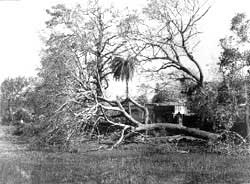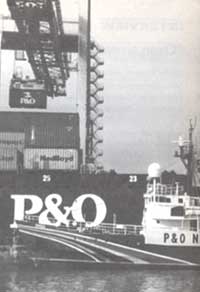
Filthy lucre
US's Democrats and Republicans break common bread over the fairness, or otherwise, of the Regulatory Reform Bill that could make industry accountable for the phenomenal fouling of America

US's Democrats and Republicans break common bread over the fairness, or otherwise, of the Regulatory Reform Bill that could make industry accountable for the phenomenal fouling of America
The Aral Sea crisis exemplifies " creeping environmental problems", and unless India's environment ministers devote more time to natural resource management, we will multiply tragedies like Kalahandi and Palamau

From archangels to archfiends the reputation of IAS officers has certainly nosedived. Anil Agarwal, director, Centre for Science and Environment, and N C Saxena, director, Lai Bahadur Shastri National Academy of Administration, Mussorie, share their v

Extracting minerals and ornamental stone in the Aravallis despit its environmental costs is such a flourishing economic activity that political parties are vying with each other to protect it. Because most mine workers have no other livelihood, they r

Biological molecules hold the key to understanding diverse life processes and to correct aberrations

Pakistan"s environmentalists say no to dumping of obsolete and hazardous technology by the West

New, more efficient aids are being developed for the physically handicapped under a government project. The stumbling blocks, however, are the mass production and marketing of these aids
<h2 class="title " style="margin-bottom: 0px; color: rgb(0, 0, 0); font-size: 22px; margin-top: 5px; font-family: arial; padding-left: 15px; padding-top: 10px !important; border-top-width: 0px !important;
<div> <strong>What happened to our right to CLEAN AIR! </strong></div> <div> </div> <div> Our campaign started with blowing the lid on smog and exposing the smogmakers in a city where
Finance Minister P. Chidambaram's initiative is a major step in recognising the country's debt to farm families but much more needs to be done. Finance Minister P. Chidambaram's budget 2008-09 has aroused widespread interest in methods of saving our small and marginal farming families from indebtedness and acute economic distress, which lead to occasional suicides. The steps proposed in the budget will give relief to nearly four crore farmers, at an estimated outlay of Rs.60,000 crore. As stressed by Mr. Chidambaram, this is a major step in recognising the indebtedness of the country to farm families who, th rough their toil in sun and rain, are safeguarding national food security and sovereignty. The question arises whether this step will mark the end of farmers' dependence on moneylenders and traders for their credit needs. Some of the following issues need consideration: First, the definition of small and marginal farmers has to be different for irrigated and dry farming areas. The present definition classifies marginal farmers as those owning up to 1 hectare and small farmers as those owning 1-2 hectares. Farmers cultivating crops in rainfed, arid, and semi-arid areas may own 4-5 hectares but their income is uncertain and their agricultural destiny is bound closely to the behaviour of the monsoon. A large number of farming families affected by the agrarian crisis in Vidharbha fall under this category. They will not be eligible for debt waiver and debt relief under the present scheme. A second problem relates to the source from which loans have been taken. The programme announced in the budget covers farmers who have taken loans from scheduled commercial banks, regional rural banks, and cooperative credit institutions. It does not cover farmers indebted to moneylenders and traders. According to the National Sample Survey Organisation (NSSO), 48.6 per cent of the farm households surveyed were indebted; of these 61 per cent had operational holdings below 1 hectare. Of the total outstanding debt, 41.6 per cent was taken for purposes other than farm-related activities, such as healthcare and domestic needs; 57.7 per cent of the outstanding amount was sourced from institutional channels and 42.3 per cent from moneylenders, traders, relatives, and friends. It has been estimated that in 2003, non-institutional debt accounted for Rs.48,000 crore; and out of this, Rs.18,000 crore was at an interest of 30 per cent per annum or more (NSSO 59th Round cited by the Economic Survey 2007-08). The Expert Group on Agriculture Indebtedness chaired by Professor R. Radhakrishna has recommended, in its report of July 2007, the inclusion of the financially excluded, particularly the small borrower households, and the adoption of risk-mitigating measures for agriculture. The concept of financial inclusion is in its early stages of operationalisation. Loan waiver is the price we have to pay for the neglect of rural India during the past several decades, as reflected in a gradual decline in investment in key sectors like irrigation, post-harvest technology (even today, farmers dry the harvested paddy on roads), market, and communication. The four crore farmers who are to be relieved of their debt burden before the end of June 2008 will become eligible once again for institutional credit for their cultivation expenses during kharif 2008. The challenge now is to prevent them from getting into the debt trap again. For this purpose, both Central and State governments should set up immediately an Indebted Farmers' Support Consortium at the district level. This should comprise farm scientists, panchayati raj leaders, input supply agencies, representatives of relevant government departments and financial institutions, rural and women's universities and home science colleges, private sector and media representatives, and others relevant to assisting the farmers relieved of their past debt in improving the productivity and profitability of their farms in an environmentally sustainable manner. This is essential for enabling them to have a higher marketable surplus and thereby more cash income. The smaller the farm, the greater is the need for marketable surplus to avoid indebtedness. Such an Indebted Farmers' Support Consortium should get the four crore farmers the benefits of all the government schemes such as the Rashtriya Krishi Vikas Yojana, the National Food Security Mission, the Accelerated Irrigation Benefit Programme, the National Horticulture Mission, Rural Godown and Warehousing Schemes, and the National Rural Health Mission. If this is done, every farm family released from the debt trap should be able to produce at least an additional half tonne per hectare of food grains or other farm produce. This should help increase food production by about 20 million tonnes during 2008-10. At a time when global and national food stocks are dwindling and prices are rising, this will be an extremely timely gain for our national food and nutrition security system and for the control of inflation. We should ensure that the outcome of debt waiver is enhanced farmers' income and production. The prevailing gap between potential and actual yields in the crops of rainfed areas such as jowar, bajra, millets, pulses, and oilseeds is over 200 per cent even with the technologies on the shelf. The restarting of the agricultural career of four crore resource-poor farmers through loan waiver could mark a new dawn in both agrarian prosperity and national food sovereignty

What determines a person"s behaviour through the vicissitudes of life: genes, environment or both? There are many who believe that genetic determinism is fascist ideology in scientific garb. There are others who hold that genetics holds the key to everlas

The trials run before introducing drugs into the market are peppered with death-inviting inaccuracies and even brazen lies

The budget seeks to encourage technological change in India, especially in export-oriented industries, and to obtain private funding for government R&D institutes.

Campaigns by women have been successful in curbing alcoholism among their menfolk in Manipur and Andhra Pradesh, but similar efforts have failed in Haryana and drinking there has increased.

One of the most lucrative pisciculture activities today, shrimp cultivation in India was recently given a devastating body blow by a mysterious lethal virus. Author tracks the beast

The loss of life in the super cyclone that hit the Orissa coast last year was not an act of God . Had the emergency plans been in place, the loss would have been considerably reduced. It is time the government focused on a village level emergency plan ,

Are the nations of the world serious in their much touted efforts to control greenhouse gas emissions? VINAYAK RAO examines the motives, moods and manifestoes in the run up to the forthcoming climate change conference in Geneva

Blind terror: 80 per cent of the world's sightless are in the developing world, and the number will double by the turn of the century. Carl Kupfer is the director of the National Eye Institute, Betheseda, USA. He tells the author that blindness is not onl
The botted water industry is global in nature. But it is designed to sell the same product to two completely different markets one water rich and the other water scarce. The question is whether this

It's time South Asian countries took Iaction to tackle the POP menace. To begin with, they should tell the West that South Asia is not a dirty clumpyard where they can get rid of their toxic wastes